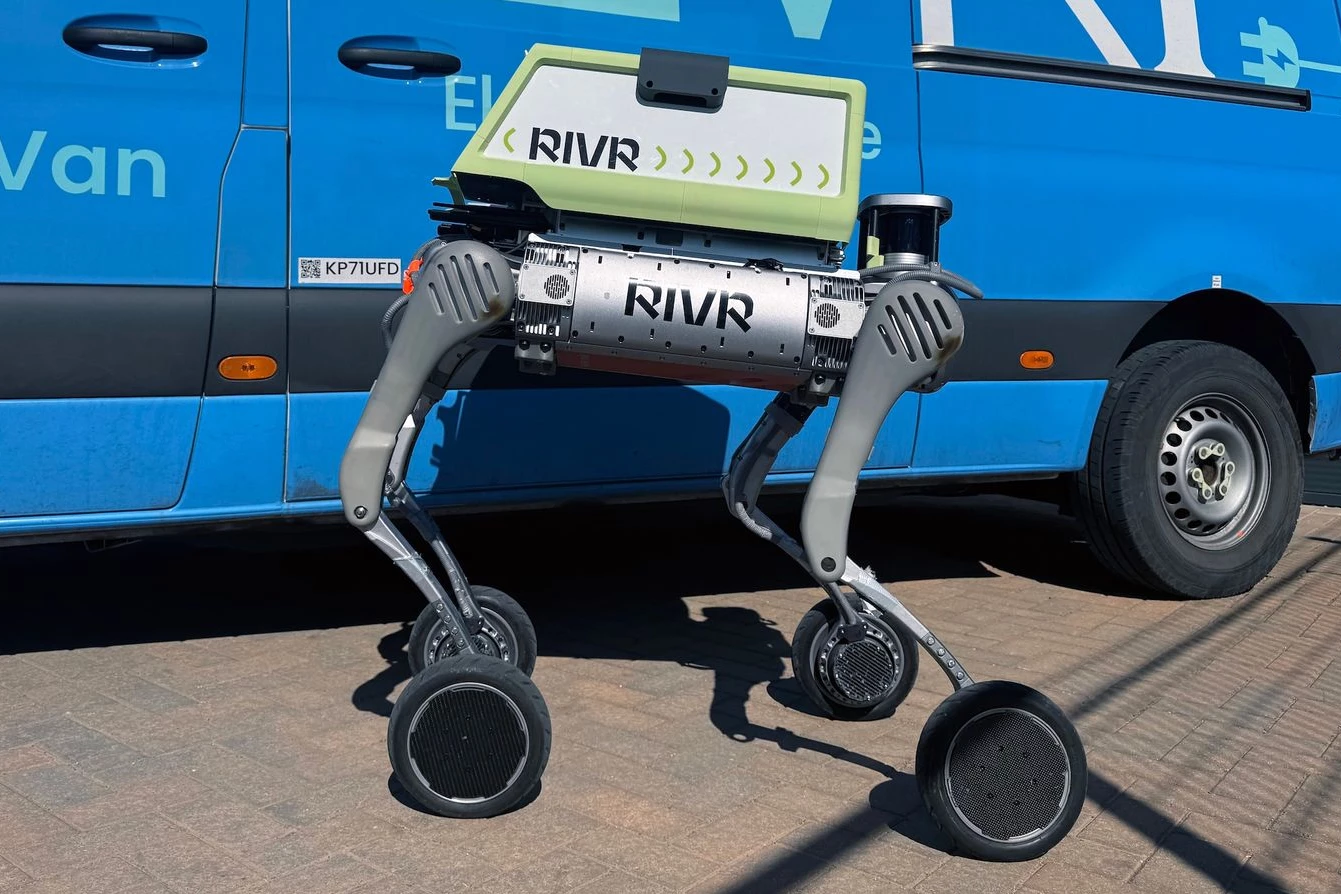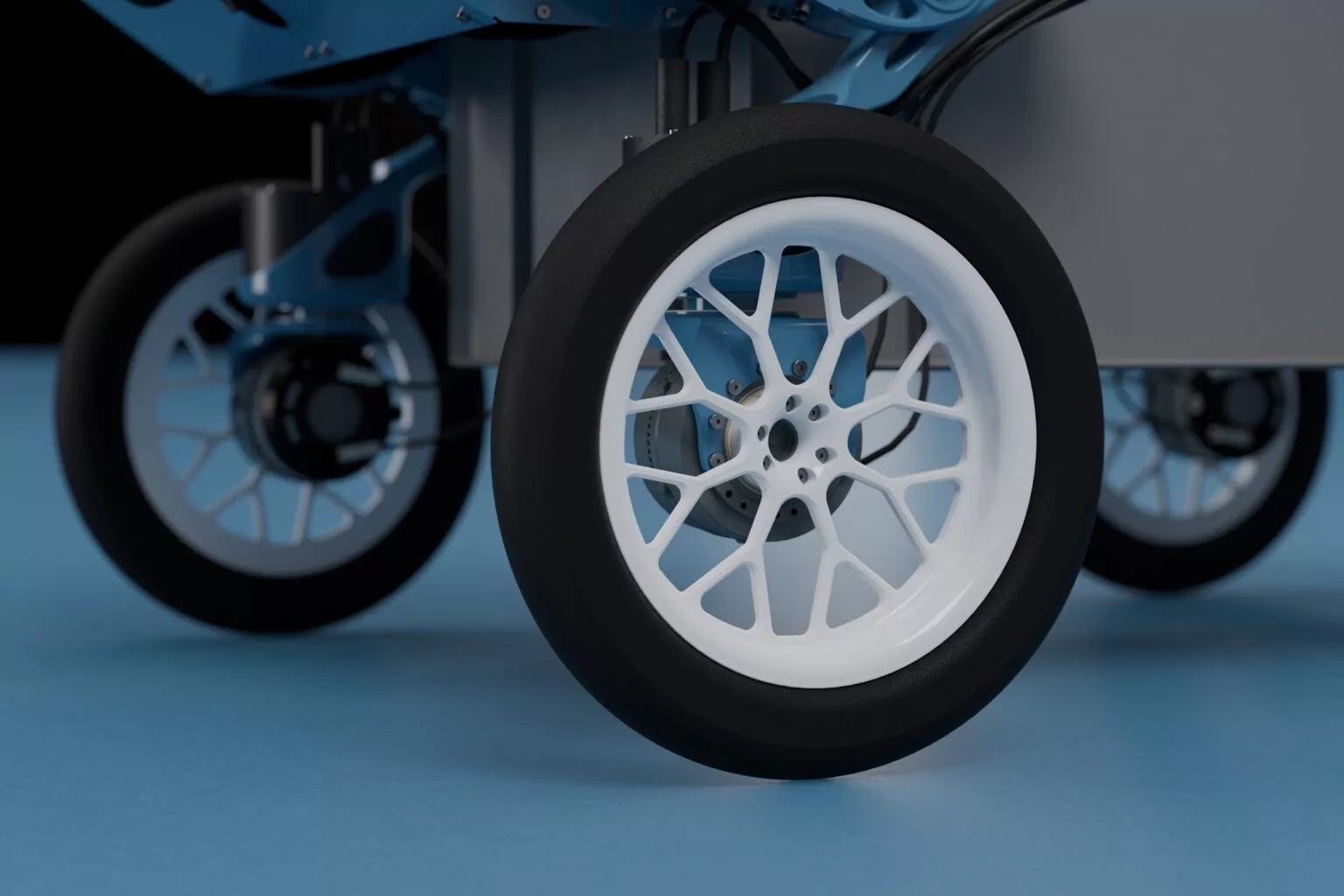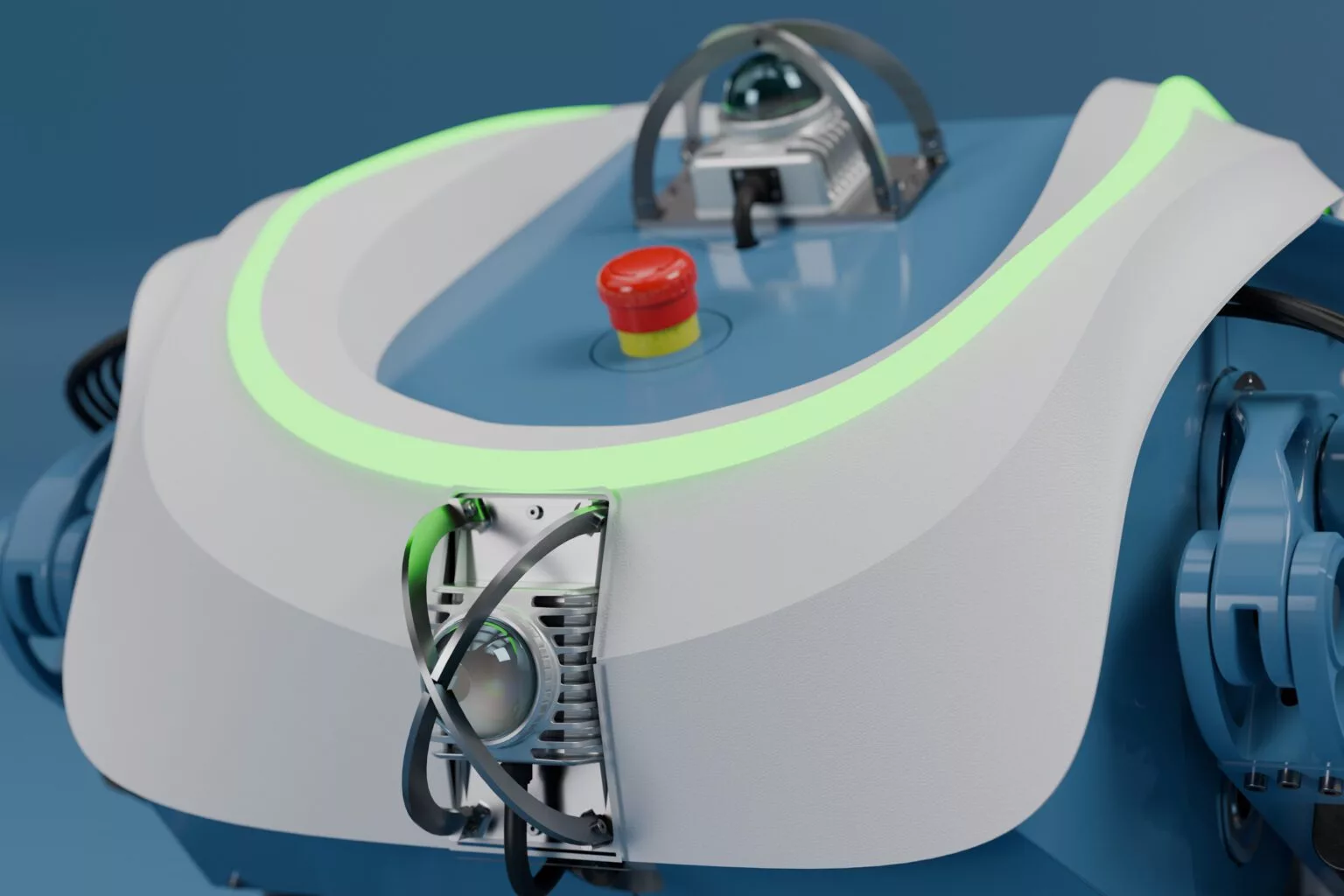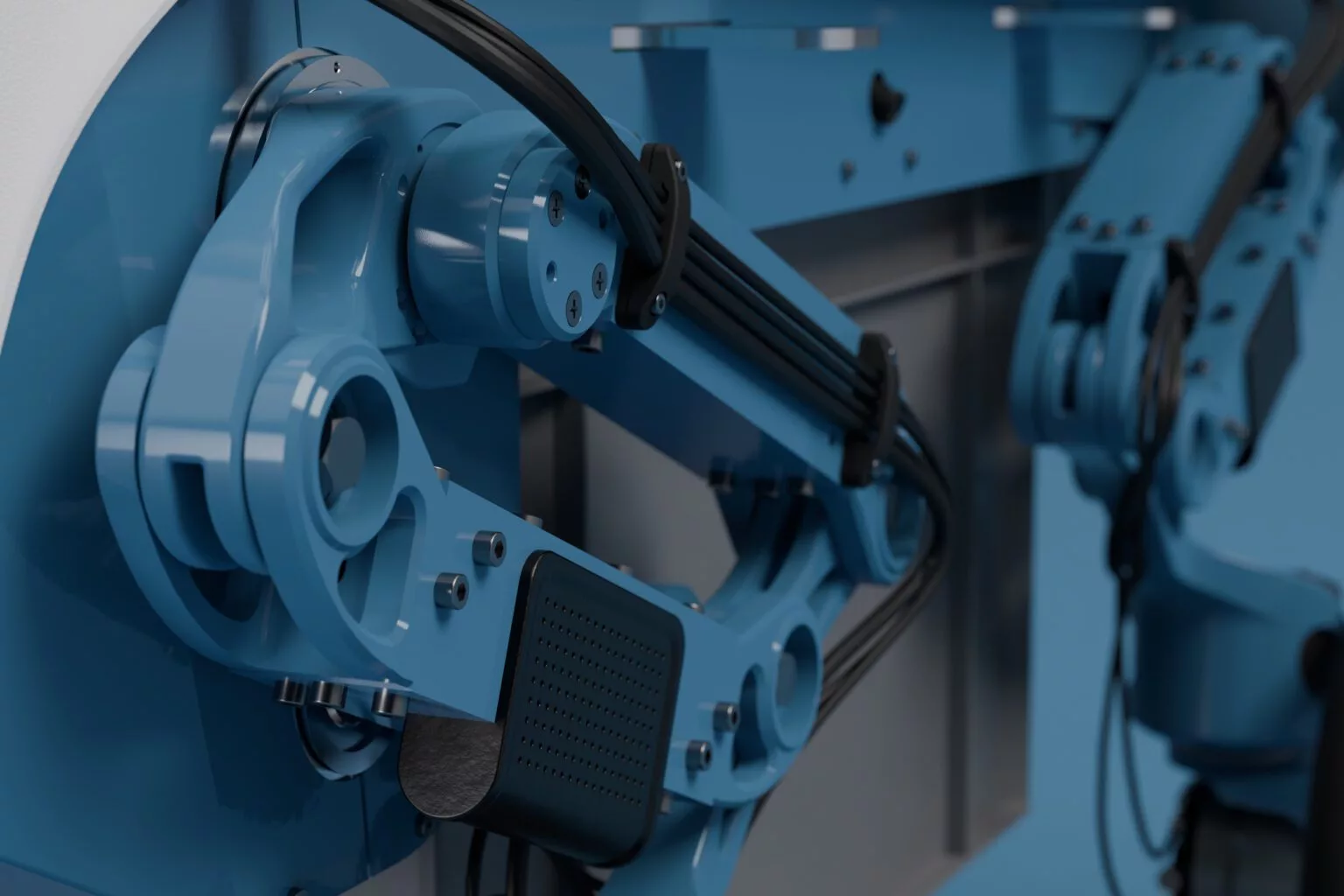Ground-going delivery robots are already streamlining operations in various industries, but they typically still have to be loaded and unloaded by humans. That's where the multi-terrain LEVA bot comes in, as it can autonomously lift and drop off cargo boxes weighing up to 85 kg.
Currently in functional prototype form, LEVA is being developed by a team of engineers and designers from Switzerland's ETH Zurich university, Zurich University of Applied Sciences, and Zurich University of the Arts.
ETH spinoff company RIVR (formerly Swiss-Mile) already manufactures the RIVR ONE (formerly ANYmal) quadruped robot, which certainly could be used for deliveries in urban settings. Like RIVR ONE, LEVA has four jointed legs, each one with a motorized wheel at the end instead of a foot.

This design allows the robot to quickly and energy-efficiently zip across smooth surfaces such as sidewalks, simply by rolling on its wheels like a car. It utilizes a combination of GPS, LiDAR sensors and cameras to autonomously navigate city streets and avoid obstacles.
When the bot needs to climb stairs or step over curbs, it locks up its wheels and then walks/climbs like a dog or other four-legged animal. It can also use this functionality to traverse rough terrain that isn't conducive to rolling.
The big thing that sets LEVA apart from RIVR ONE is its ability to autonomously spot, make its way over to, then lift and carry Euro-type cargo boxes weighing as much as 85 kg (187 lb).

This process is partially made possible by five onboard cameras – one on each vertical side of the robot's rectangular(ish) body, and one on the underside. Additionally, because each of the wheels is independently steerable, the omnidirectional bot can roll straight to the left or right as needed.
Once LEVA has positioned itself directly over the box, it bends its legs to lower its body downwards. Internal powered hooks then latch onto the top of the box, securing it beneath the bot's body. The robot then just rises back up and heads for its destination.
It's hard to say how soon it might be before you see a LEVA on a street near you, as the scientists are still perfecting the bot's real-world functionality. In the meantime, you can see it in box-toting, stair-climbing, ground-rolling action, in the video below.
Source: LEVA








